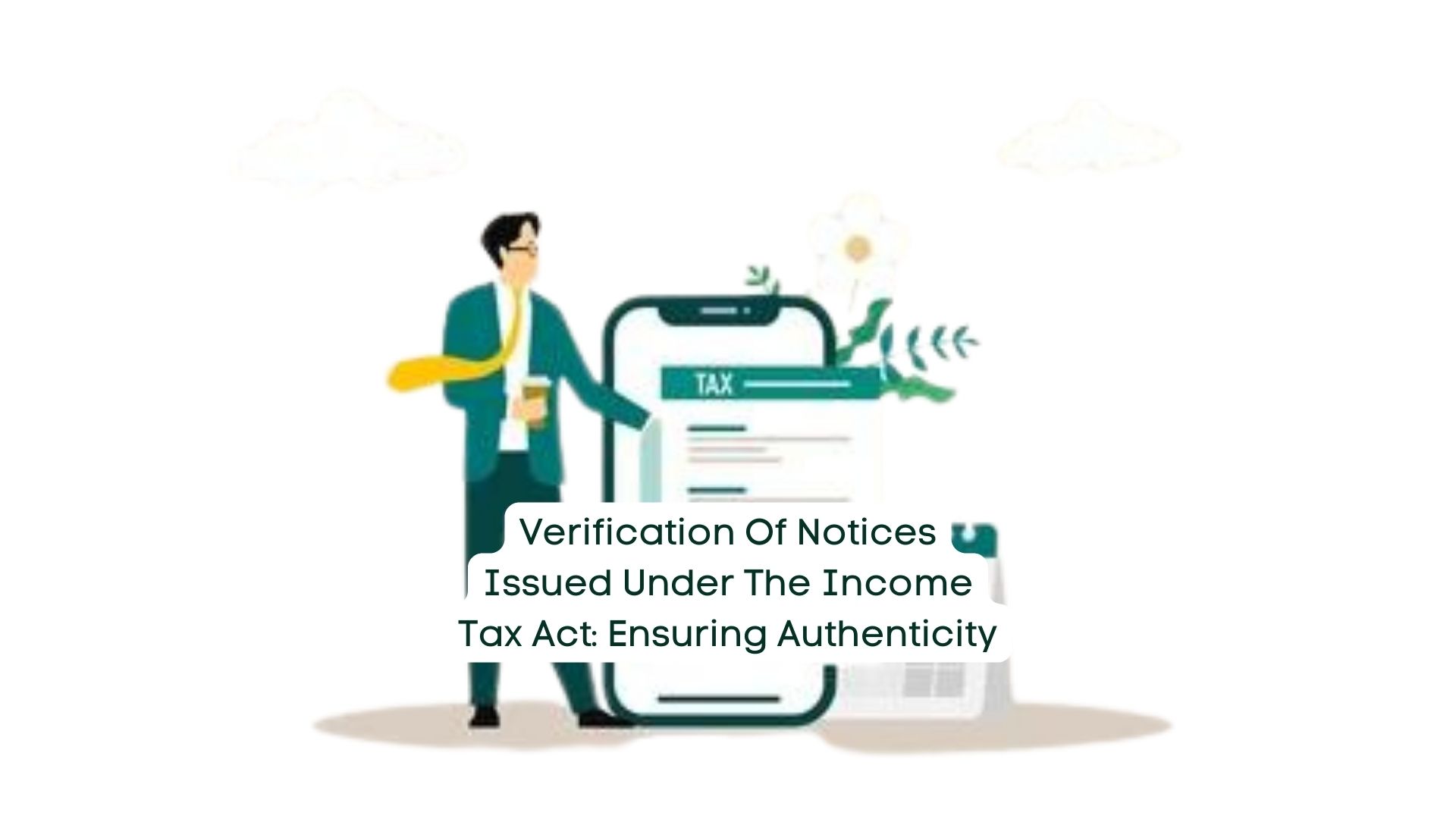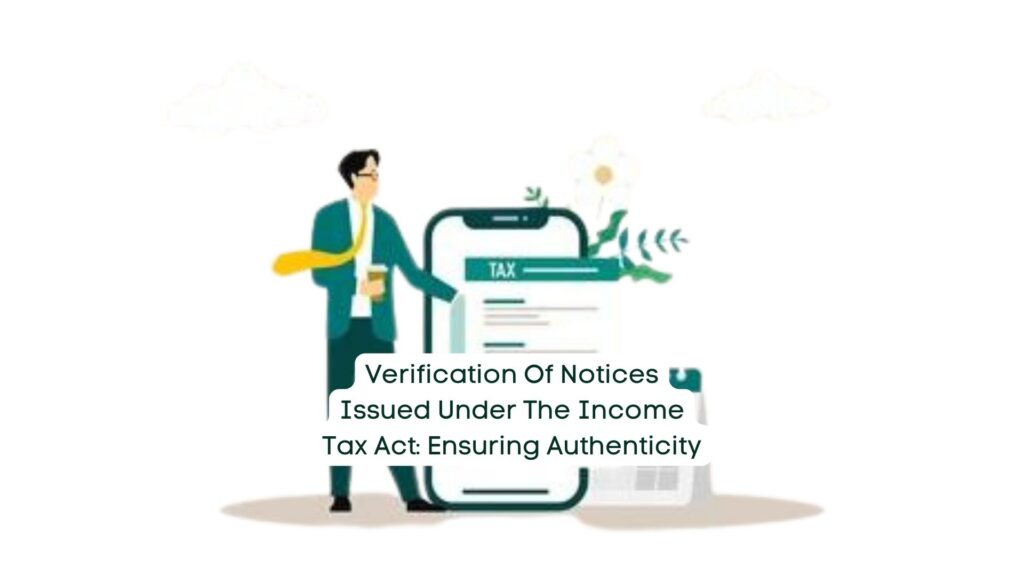
24 Feb Verification of Notices Issued under the Income Tax Act: Ensuring Authenticity

In instances where the Income Tax Authority expressed dissatisfaction with your Income Tax Return (ITR) filing or required further information, it issued a notice, letter, or, in severe cases, a summons. According to the Central Board of Direct Taxes (CBDT), any communication sent to a taxpayer lacking a Documentation Identification Number (DIN) was deemed unauthorized. To enhance transparency and accountability within the operations of the Income Tax (IT) department, Finance Minister Nirmala Sitharaman had implemented a new regulation mandating that all communications with taxpayers must include a computer-generated DIN. Later in this article, we delved deeper into these developments.
Understanding Income Tax Notices:
Income Tax Notices are issued by the Income Tax Authority for various reasons, such as failure to file returns, errors in filing, or requests for additional documentation or information. Even if returns are filed on time, taxpayers may still receive notices, often due to calculation errors or inaccuracies in reporting incomes.
Distinguishing between Notice and Intimation under the Income Tax Act:
It’s crucial to differentiate between intimation and notice. While an intimation typically informs taxpayers about the processing outcome of their returns or assessment conclusions, a notice requires action. The CBDT has introduced the Centralized Communication Scheme (CCS), aiming to handle all communications electronically over time.
Validating Income Tax Notices:
Before responding to any communication purportedly from the Income Tax department, it’s imperative to verify its authenticity. Follow these steps to authenticate notices:
- Visit the official website of the Income Tax Department at www.incometaxindiaefiling.gov.in.
- Navigate to the "Authenticate" tab under "Quick Links" and select "Notice/order issued by ITD" from the dropdown menu.
- You'll be directed to a new webpage where you can verify notices/orders using either the document number or PAN assessment details.
- Enter the required information accurately.
- Submit the information along with a valid captcha code.
Types of Income Tax Notices:
- Section 139(9): Sent for defective returns, prompting corrections within 15 days.
- Section 143(1): Indicates excess tax paid or shortfall, leading to either a refund or intimation of tax liability.
- Section 143(a): Issued when reported incomes, exemptions, or deductions don't match with available data.
- Section 142(1): Requests additional information or ITR filing.
- Section 143(2): Initiates audit due to mismatches in reported income.
- Section 148: Notifies income escaping assessment, initiating reassessment procedures.
- Section 156: Demands payment for penalties, fines, or taxes.
- Section 245: Informs about adjustments in tax refunds.
Conclusion:
Taxpayers should diligently attend to income tax notices and intimation. Additionally, they can verify the authenticity of notices through the new income tax portal, which offers a tool for validation, introduced by the Income Tax Department in October 2019.


No Comments